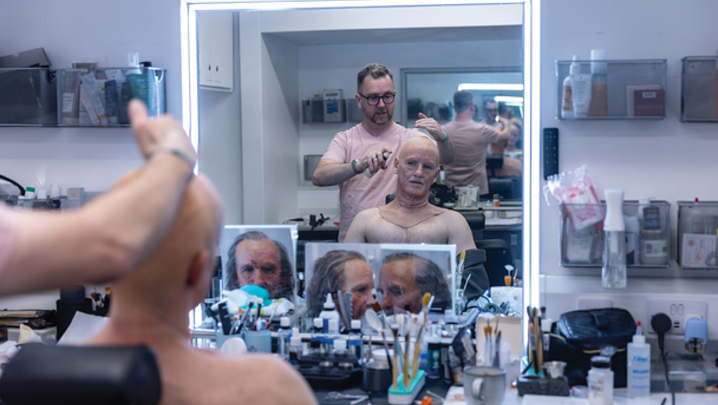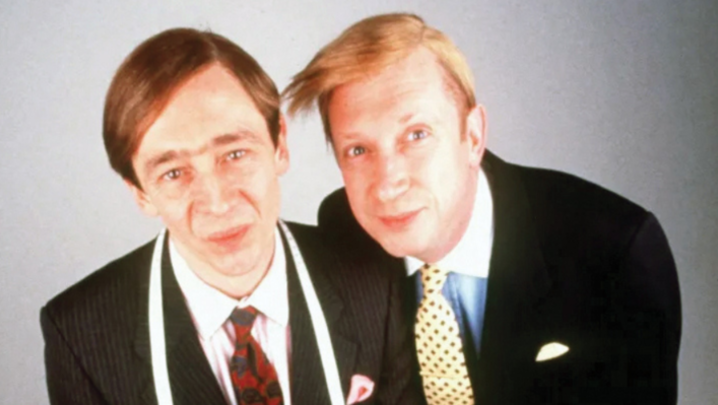Steve Clarke remembers a BBC TV executive once seen as a future DG, who went on to chair the RTS
John Gau, who has died aged 83 and was a former Chair of the RTS, was one of the leading broadcasters and producers of his era. He almost certainly would have been promoted to the prestigious job of running BBC One were it not for a row over the BBC’s coverage of the Troubles in Northern Ireland involving the then Prime Minister, Margaret Thatcher.
He was an influential BBC current affairs producer and, as a pioneering independent producer, an important maker of TV documentaries. A former BBC colleague, the ex-Radio 4 Feedback presenter Roger Bolton, described John as “decisive, tough but kind and possessing a lovely sense of humour, and having a capacity for mischief”.
His mother, Nan Munro, was an actor and he was later married to another actor, Susan Tebbs, so was familiar from childhood with an important aspect of the arts. He spent some of his childhood in South Africa but was educated in England, at Haileybury public school in Hertfordshire, before reading classics and modern languages at Trinity Hall, Cambridge. He later studied at the University of Wisconsin, where he was active in campus television.
John joined the BBC as an assistant film editor in 1963.
As a producer on BBC current affairs flagship Panorama from 1969 to 1973, he collaborated extensively with presenter Julian Pettifer, having earlier worked with him on another BBC current affairs series, 24 Hours, which John had produced from 1965 to 1969.
He was also a successful editor of Nationwide, which took a noticeably populist and sometimes light-hearted attitude to TV journalism.
“At the time, I remember people thinking John editing Nationwide was a rather improbable choice because, up until then, his background was in very serious stories, often with an international bent,” recalled Bolton.
In 1978, John was promoted by the BBC to the powerful role of Head of Television Current Affairs. There he found himself at odds with BBC management. Coverage of the Troubles was a sensitive area for all British broadcasters, especially the BBC.
The so-called Carrickmore row – Carrickmore was a village in County Tyrone – was one of those BBC controversies that regularly plague the corporation, leading to outraged comments in Parliament and the press. The footage shot of the IRA carrying out “road checks” on motorists by a team including Panorama reporter Jeremy Paxman and producer David Darlow – staged for the cameras as a display of terrorist power – was never shown.
Word did, however, leak to the papers, which accused the BBC of “colluding with the enemy”. Thatcher told the BBC “to put its house in order”. Bolton, the editor of Panorama, was sacked but swiftly reinstated following protests by BBC journalists and support from John Gau.
John argued that the BBC he had joined in the 1960s had been “fiercely independent, journalistically courageous and steadfastly loyal to its staff” and that “the handling of the Carrickmore incident seems to me to call these virtues into question”. He kept his job but was disciplined.
Not long after, he applied to succeed Bill Cotton as BBC One Controller. Within Television Centre, John was widely regarded as the best candidate for the job, which, to many people’s surprise, went to the Head of Sport, Alan Hart. “The Director-General wanted John Gau to be Controller, but the governors blocked the appointment,” said Bolton. “John was probably the best BBC One Controller the BBC never had and looked like becoming a future Director-General.”
“John Gau was a big figure,” recalled another colleague, Will Wyatt, former MD of BBC Television.
In 1981, he left the BBC to form John Gau Productions, partly in response to the arrival of Channel 4, conceived as a publisher-broadcaster that would buy all its programmes from independent producers. An early commission was Soldiers, presented by Frederick Forsyth, for BBC One. From 1988 to 1990, Gau was Director of Programmes at British Satellite Broadcasting, before it was taken over by Sky, but it was not his finest hour.
He became a CBE in 1989, chaired the Independent Programme Producers Association (1983-86) and the RTS (1987-91) and was a director of Channel 4 (1984-88). John is survived by his wife and their children, William and Chris.







